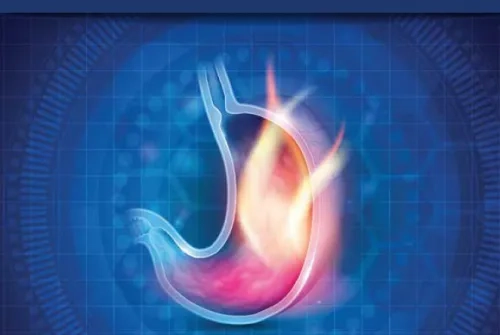Alo Yeditepe
Alo Yeditepe
What is Gastroesophageal Reflux Disease?
Complaints that occur as a result of stomach acid, bile, pancreas, or small intestine content escaping from the stomach to the esophagus, sometimes including foods eaten, are called gastroesophageal reflux disease. At the beginning of these complaints is a burning sensation that starts from the upper abdomen and is sometimes felt in the back, sometimes in the throat. However, gastroesophageal reflux disease may be the basis of complaints such as nausea, vomiting, hoarseness, cough, bitter taste in the mouth, belching sensation, bloating, and difficulty swallowing.
How Does Gastroesophageal Reflux Disease Occur?
The esophagus is a way for food to reach the stomach. For the first time in the body, foods are encountered with this organ and tried to be adapted to the body's characteristics. Therefore, it is covered with durable cells (Mucosa) that can be extremely resistant to external factors such as cold, heat, and mechanical shocks. Where the esophagus joins the stomach, there is a valve system that allows food to pass into the stomach during swallowing and then closes and prevents these foods and stomach acid from escaping back. In reflux, reverse leaks occur due to impairment of the valve system functions. Since gastric acid is extremely sensitive to factors such as bile, inflammation begins to develop in the esophageal mucosa over time and complaints of gastroesophageal reflux disease occur. It should be kept in mind that untreated gastroesophageal reflux disease can lead to cancer over a long period, albeit with a low probability.
How Is the Diagnosis Made?
Although methods such as 24-hour pH monitoring, barium swallow, and Bernstein test can be used in the diagnosis of the disease, endoscopic examination is the main preferred method today. Diagnosis methods are applied to reflux patients with different characteristics. It should be kept in mind that the most appropriate treatment can only be determined by specialist physicians.
What Should Be Considered After Diagnosis?
- Increase the number of pillows so that they do not bother you.
- Do not lie on your back for two hours after meals.
- If you have excess weight, try to lose it under the control of a physician.
- Do not neglect to use your medications and check-ups according to your physician's recommendation.
- Choose your evening meal over light foods.
- Do not use as much as possible as smoking will delay your recovery.
- Do not choose weightlifting because sports such as bodybuilding will trigger your reflux.
- Do not drink beverages such as alcohol, coffee, or soda.
- Bitter, spicy, heavy fries, salami, sausage, and fatty foods will delay your stomach's breaking down of foods. Try to stay away from these types of foods.
- Avoid clothing such as tight pants, tight belts, corsets.
This content was prepared by Yeditepe University Hospitals Medical Editorial Board.
”
See Also
- What is a Liver Transplant, How is it Done? and Who is it For?
- What is Constipation? What Helps With Constipation?
- What is Hepatitis B? What are its symptoms? How is it Transmitted?
- How to Cleanse the Liver the Fastest?
- Who Gets Colon Cancer?
- What is Colostrum? What are the Benefits of Colostrum Milk?
- Stomach Cancer Causes, Symptoms and Treatment
- What is Colon (Intestinal) Cancer? Symptoms and Treatment
- What Causes Nausea? What is Good for Nausea?
- What is Heartburn? What is Good for Heartburn?
- What is Fatty Liver?
- What is Good for Diarrhea? How to Treat Diarrhea?
- What is a Probiotic? What Are Its Benefits?
- What Is Reflux?
- Non-Surgical Treatment of Reflux
- What are the Nutrients That Stress Digestion?
- What are Capsule Treatment Methods in Stomach, Small, and Large Intestine Screening?
- Gastroenterology Procedures
- Pay Attention When Consuming These Nutrients!
- Mediterranean Diet Prevents Developing Colon Cancer!
- Breakthrough Innovations in Colon Cancer
- Diarrhea and Constipation Increased in Those with Irritable Stomach
- I Was Waking Up With Stomach Pain, I Fell Better After Endoscopic Fundoplication
- Anemia, Constipation, and Vomiting of Unknown Cause Can Be Dangerous
- As the Western Diet Increases, So Does Stomach Cancer
- Ramadan Warning for Those Who Experience Stomach Disorders
- Causes and Treatment of Abdominal Bloating
- Hepatitis Disease Poses Risk for Esophageal Varices
- The Giant Stones In The Biliary Tract Of 71-Year-Old Patient Were Removed Without Surgery
- How Is Stomach Infection Transmitted?
- Capsule Endoscopy
- Stretta / Endoscopic Reflux Treatment
- Fundoplication Method / Endoscopic Reflux Treatment
- Throat Reflux
- Techniques and Applications Used in Gastroenterology
- Irritable Bowel Syndrome (IBS)
- How to Swallow the Drug?
- Non-Surgical Reflux Treatment
Alo Yeditepe




